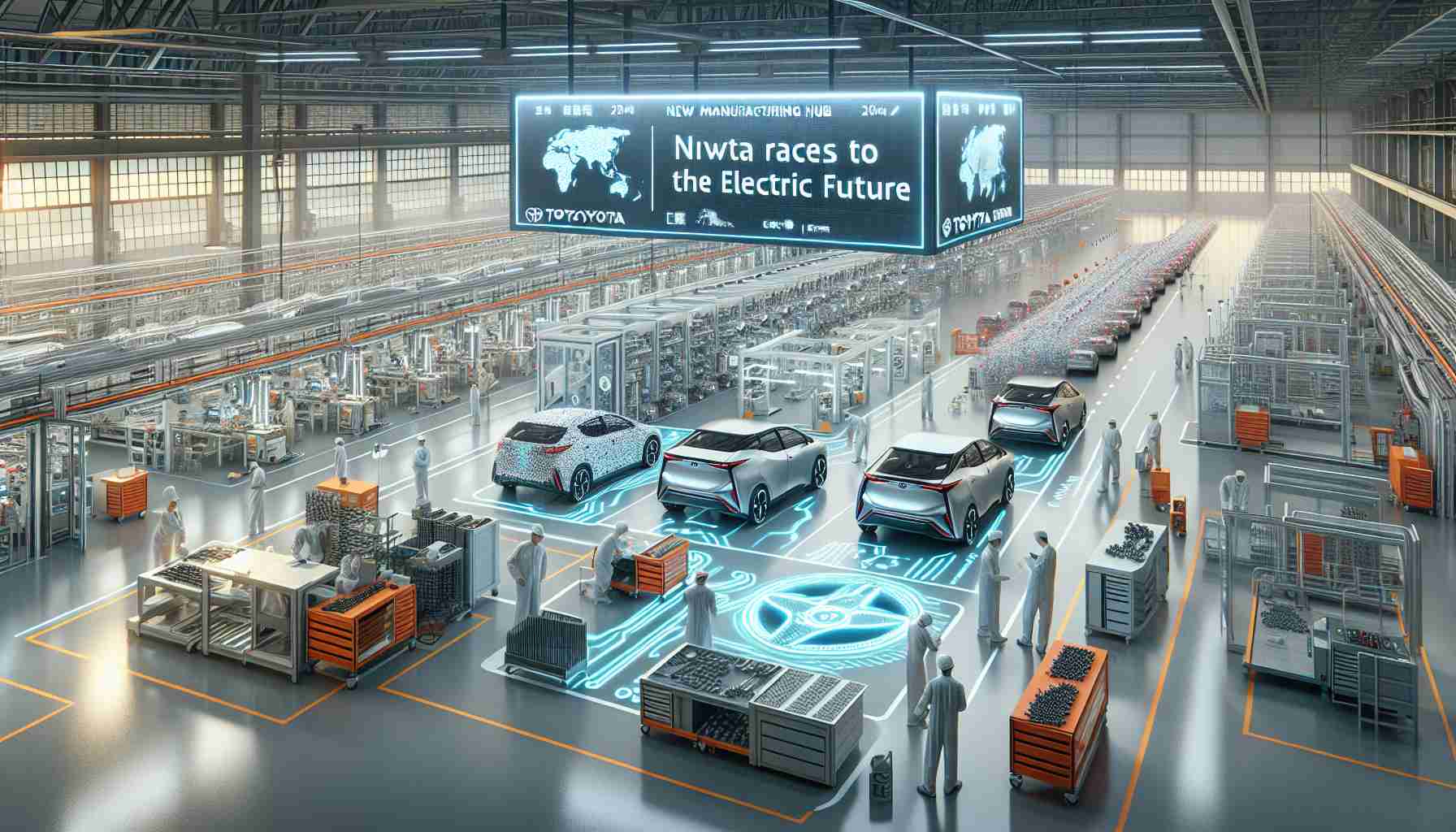- Toyota is launching a new manufacturing company in Jinshan, Shanghai, to boost its position in the electric vehicle market.
- Production of Lexus EVs will start by 2027, targeting an annual output of 100,000 vehicles and creating around 1,000 jobs.
- Despite trade tensions in Asia, Toyota reported a 61% increase in third-quarter profit, showcasing robust sales performance.
- A battery plant in the U.S. is set to create 5,000 jobs, reflecting Toyota’s commitment to local production and economic support.
- The company aims to align its EV initiatives with China’s goal of achieving carbon neutrality by 2060.
In a bold move to reclaim its position in the electric vehicle (EV) race, Toyota is launching a new manufacturing company in Jinshan, Shanghai, signaling its commitment to the booming EV market. Production for the highly anticipated Lexus EVs is set to kick off by 2027, with an ambitious capacity of 100,000 vehicles per year, creating approximately 1,000 jobs in the region.
This strategic venture comes as the Asian market faces uncertainty amid escalating trade tensions, but Toyota is undeterred. The company recently reported a staggering 61% surge in fiscal third-quarter profit, reaching ¥2.19 trillion ($14 billion), amidst solid sales of ¥12.4 trillion ($81 billion). This growth follows a hiccup due to a certification scandal that temporarily impacted production.
In addition, Toyota is establishing a battery plant in the U.S. that promises to deliver 5,000 new jobs, showcasing its dedication to boosting production and supporting local economies. The revamped profit forecast for the fiscal year also signals a shift in momentum, with expectations rising from ¥3.6 trillion ($24 billion) to ¥4.5 trillion ($29 billion).
With its deep roots in the Chinese market, Toyota aims to align its electric vehicle development with local preferences, as it strives to meet China’s ambitious goal of carbon neutrality by 2060. The message is clear: Toyota is not just about building cars but about fostering relationships and creating sustainable solutions that resonate with the community. Join the electric revolution with Toyota as they power toward a greener future!
Toyota’s Bold Push into the Electric Vehicle Market: What You Need to Know!
Overview of Toyota’s New EV Venture
In a strategic move to enhance its footprint in the electric vehicle (EV) sector, Toyota is setting up a new manufacturing facility in Jinshan, Shanghai, aiming to produce up to 100,000 Lexus EVs annually by 2027. This initiative is expected to create approximately 1,000 local jobs, reinforcing Toyota’s commitment to expanding its operations in the Asian market, despite current economic uncertainties and trade tensions.
Key Insights and Trends
– Market Forecast: The demand for electric vehicles is projected to grow exponentially over the next decade, with analysts predicting that EV market penetration could exceed 30% of new car sales by 2030 globally, demonstrating a substantial opportunity for automotive manufacturers like Toyota.
– Innovations: Alongside the manufacturing plant, Toyota is investing heavily in battery technology, which is crucial for the performance and range of EVs. The establishment of a battery plant in the U.S. is a strategic move intended to enhance local production capabilities and reduce dependency on imports, ensuring a more resilient supply chain.
– Sustainability Goals: Toyota is aligning its new developments with global sustainability trends, particularly China’s aim for carbon neutrality by 2060. This involves not only producing electric vehicles but also developing sustainable manufacturing practices and community engagement initiatives.
Pros and Cons of Toyota’s New EV Strategy
Pros:
– Strong response to market demands for EVs, potentially increasing market share.
– Job creation, boosting the local economies of both China and the U.S.
– Investments in battery technology could lead to significant advancements in EV performance.
Cons:
– Potential challenges in navigating trade tensions may affect production costs and timelines.
– The transition to electric vehicles could strain existing infrastructure and supply chains.
– There remains fierce competition from other established EV manufacturers.
Key Questions and Answers
1. What are the expected benefits of Toyota’s new manufacturing plant in Jinshan?
The new plant is expected to create around 1,000 jobs and produce 100,000 electric Lexus vehicles annually, contributing significantly to local employment and supporting Toyota’s growth in the rapidly expanding EV market.
2. How is Toyota’s investment in battery technology affecting its overall strategy?
By investing in local battery production, Toyota aims to secure its supply chain, improve the efficiency of its EVs, and ensure sustainable practices, which are vital for meeting consumer expectations and achieving environmental targets.
3. What challenges could Toyota face in the electric vehicle market?
Toyota may encounter challenges related to trade regulations, competition from other EV manufacturers, and the need for significant changes in production processes to align with new technology standards in battery and vehicle manufacturing.
For more insights into Toyota’s strategies and innovations, visit Toyota’s official website.
